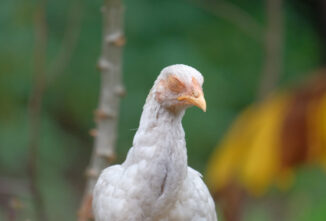Featured Stories
Newborn Calf Problems: Giving Animal CPR to Calves
Be prepared for emergencies during calving season by learning animal CPR. This skill can help save more newborn calves and improve your herd’s survival rates. Read More
Basic Pork Primal Cuts
Explore the five pork primal cuts, review a list of pork meats from each, and understand their common uses. Read More
Just for Fun: Reader Photos – November/December 2025
Add to Favorites Just for Fun is where readers get to show off and share their own adorable and beautiful goats. As the newsletters progress through a two-month period, this … Read More
Ask Our Experts October/November 2024
Ana Skemp and Audra Trosper answer your poultry questions about a blind chick, a broody duck, a sick hen walking backward, and a new flock with droopy wings. Read More
Steps for Successfully Filtering Beeswax
We have tried several ways of filtering beeswax and our favorite way is to filter the wax on the stove top. Read More
Setting Honey Prices, Labeling, and Marketing Homestead Honey
In the beginning, we didn’t have any extra honey, but after a while, we had more than our family could use and we decided to sell some. Read More
Moisture Control in The Hives: A Four-Season Approach
We work with the seasons and the bees’ own incredible ability to self-regulate to keep heat, cold, and moisture in check. While it is useful to look at how bees live “in the wild” to understand their natural preferences, it’s good to remember that honey bees are adaptable and live all over the world, in all climates. Read More
How to Make a Quilt Box
A quilt box is a great way to absorb the water that condenses from bees’ respiration during the colder months. While bees can tolerate cold temperatures, the moisture can be deadly. Read More
How Do I Combine Two Double-Deep Hives?
Before you begin to combine the two double-deep hives, try to consolidate the brood nests in each hive. For example, If one hive has five frames of brood in one box, and two in the other box, try to put all seven of them in one box. Repeat this process in the other hive. Read More
Is Moisture Killing My Bees?
As long as they are dry, honey bees are wizards at staying warm. But a moist hive can be a death sentence because evaporation is a cooling process that steals the heat from a bee’s body. Living in a damp hive is like standing in a cold room while dripping wet from a shower. Read More
Swarm Prevention Methods
Though swarming is a natural, colony-level reproductive process, it’s often viewed as beekeeper negligence. Learn swarm prevention methods so you don't lose honeybees or potential hive products. Read More

















